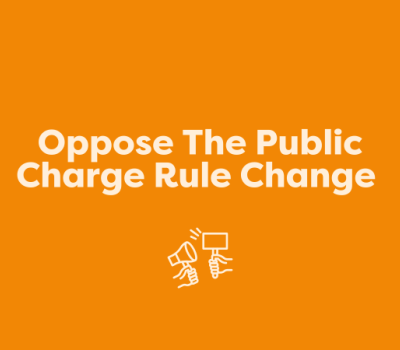Voices for Utah Children strongly supports and urges Congress to pass the Dream and Promise Act of 2025. Congresswoman Sylvia Garcia (D-TX-29) and a bipartisan coalition of lawmakers reintroduced this bill on February 26, 2025, to ensure security and opportunity for thousands of individuals who contribute to our communities, economy, and nation every day.
The American Dream and Promise Act of 2025 would provide a long-overdue pathway to citizenship for “Dreamers” [1], including Deferred Action for Childhood Arrival (DACA) recipients [2], Temporary Protected Status (TPS) holders [3], and Deferred Enforced Departure (DED) beneficiaries [4].
The American Dream and Promise Act of 2025 would:
Provide eligible "Dreamers” with conditional permanent residency for ten years and cancel removal proceedings
Grant eligible DACA recipients with a pathway to citizenship through full Lawful Permanent Resident (LPR) status
Provide TPS and DED holders with permanent residency
Protect applicants from deportation during the application process
Expand access to federal financial aid for DACA recipients pursuing higher education
Allow eligible “Dreamers” located abroad to apply for relief
The economic benefits of this legislation are clear.
A pathway to citizenship for DACA recipients is projected to boost the U.S. GDP by $799 billion over the next decade, increase wages for all workers, and create hundreds of thousands of new jobs. In Utah, DACA recipients and TPS recipients play a vital role in our workforce, filling essential healthcare, education, and technology jobs while also contributing as small business owners, entrepreneurs, and homeowners.
In 2023, DACA recipients contributed $63.6 million in state and local taxes in Utah, while TPS holders contributed an additional $20.1 million. Providing them with permanent status will strengthen family stability and allow them to invest in Utah’s future.
In Utah, more than 16,000 DACA-eligible and 6,000 TPS holders may potentially qualify.
Many of these individuals came to the U.S. as young children, growing up as our neighbors, attending schools with our children, and working in essential industries like healthcare and hospitality.
Data shows that the average DACA recipient arrived in the U.S. at six years old and has lived here for over 20 years— for so many, Utah is the only home they have ever known. Similarly, TPS holders have contributed to Utah’s workforce and communities for decades. Despite their deep roots, these individuals continue to live in uncertainty due to the lack of permanent protections.
Utah has long embraced policies that support immigrant integration, recognizing that strong families and communities lead to a stronger state.
Click here to take action today by urging our state elected officials to support The American Dream and Promise Act!
The American Dream and Promise Act of 2025 reflects our state’s values of compassion, opportunity, and family unity. Voices for Utah Children urges Utah’s congressional delegation to support this critical legislation and provide much-needed relief to thousands of Utah families who deserve the security and peace of mind that comes with knowing they can have a pathway to legalization in the country they proudly call home.
For questions, please email
Footnotes
1. A “Dreamer” is a term often used when referring to undocumented immigrants who came to the U.S. as children. This group primarily includes individuals who qualify for the Deferred Action for Childhood Arrivals (DACA) program. This term can also extend to recipients of Temporary Protected Status (TPS) and Deferred Enforced Departure (DED), who may have been granted similar protections due to specific conditions in their home countries.
2. Established in 2012, Deferred Action for Childhood Arrival (DACA) provides temporary protection from deportation and work authorization for undocumented immigrants who came to the U.S. as children. Eligible individuals must have arrived before age 16, lived continuously in the U.S. since June 15, 2007, and meet additional criteria. DACA must be renewed every two years but does not offer a pathway to citizenship.
3. Created by the Immigration Act of 1990, Temporary Protected Status (TPS) offers temporary relief from deportation and work authorization to individuals from countries experiencing ongoing armed conflict, environmental disasters, or extraordinary conditions. Eligible individuals must be nationals of a designated country, have been residing in the U.S. since a specific date, and meet other requirements. TPS is temporary and requires periodic renewal based on the conditions in the home country.
4. Deferred Enforced Departure (DED) derives from executive authority and provides temporary protection from deportation for individuals from designated countries or groups facing exceptional circumstances, such as armed conflict or environmental disasters. Typically, DED is granted to individuals who have TPS or were previously protected under similar circumstances. Like TPS, DED is also temporary and can be extended or terminated at the discretion of the President.












